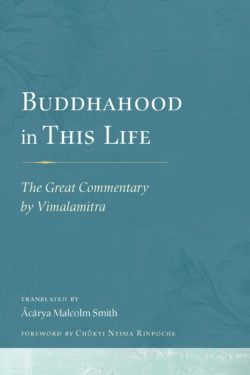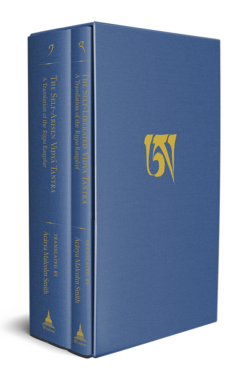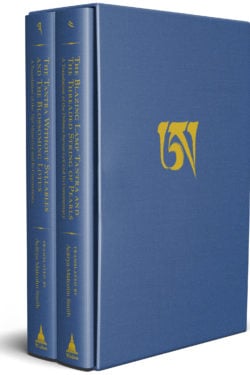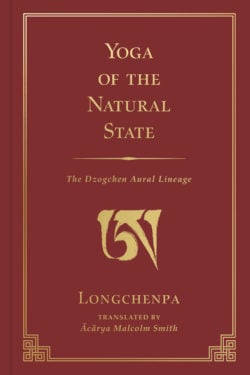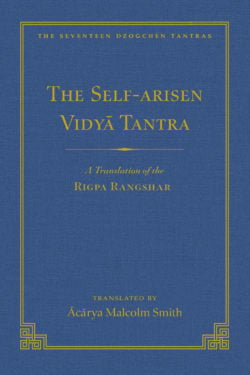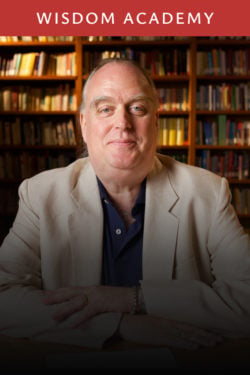Malcolm Smith
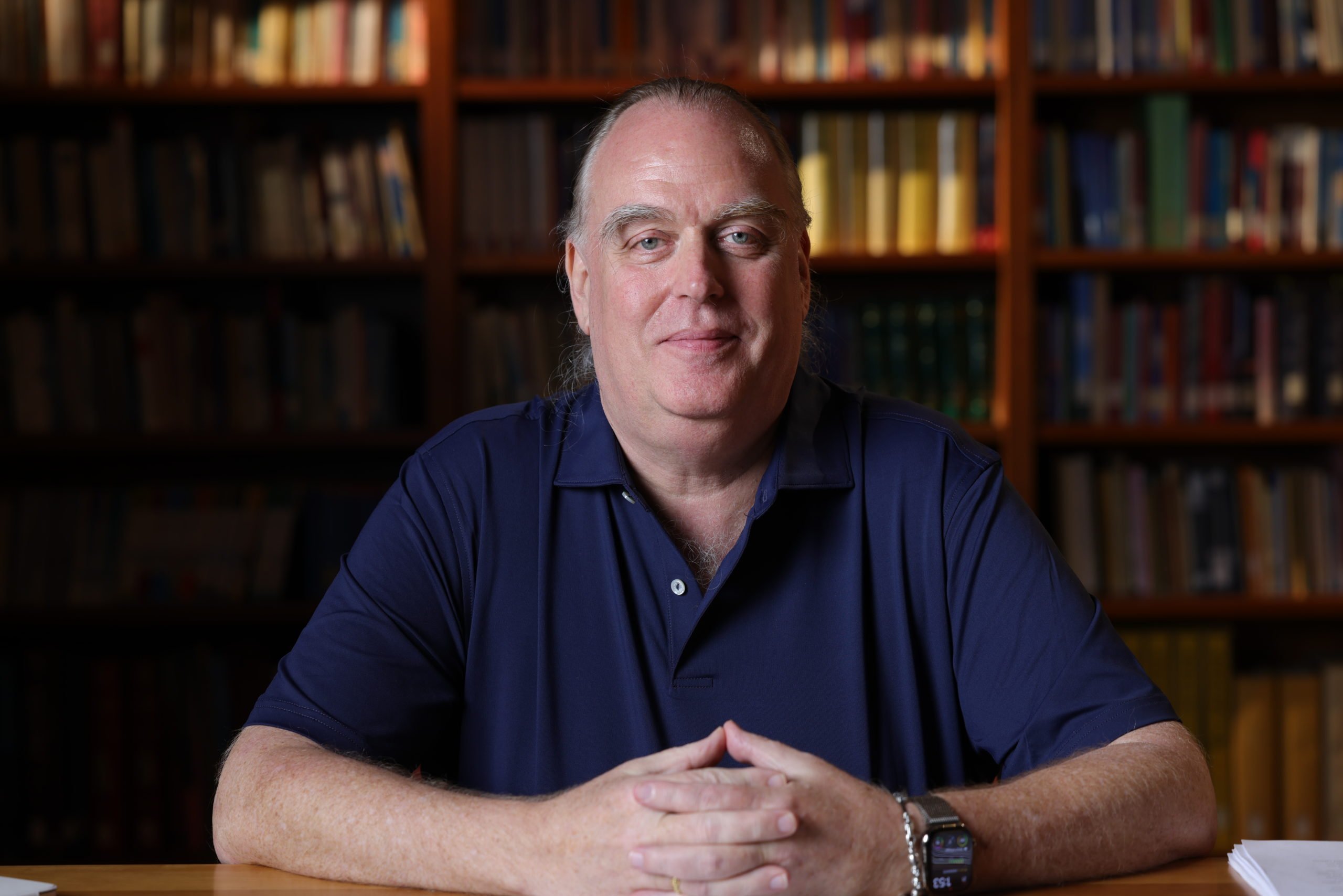
Born in 1962, Malcolm Smith was raised in Western Massachusetts. Captivated by the sound of Tibetan ritual music in 1984, he began his study of the Dharma. He met his first formal teacher, H. H. Sakya Trizin, in 1989. He studied Buddhist philosophy and Tibetan language under the guidance of Khenpo Migmar Tseten for the next five years at Sakya Institute for Buddhist Studies in Cambridge, Massachusetts. In 1990 Malcolm travelled to Nepal to receive lamdré from the late H. H. Sakya Dagchen.
He received his first Dzogchen teachings from Chögyal Namkhai Norbu in 1992. In 1993 he met his second Dzogchen teacher, Khenpo Jigme Phuntsok, receiving important transmissions. During this year he entered a three-year solitary retreat. In 1998 he met H. H. Penor Rinpoche and received the complete empowerments of the mahayoga section of the Nyingma Kama as well as teachings on the Namchö preliminary practices. In 2001, he met his third Dzogchen teacher, the late Kunzang Dechen Lingpa, from whom he received the Nyinthig Yazhi in its entirety, as well as the formal Ngakpa empowerment in 2004. He met his fourth Dzogchen teacher, H. H. Taklung Tsetrul Rinpoche, in 2001, from whom he received the entire transmission of the Gongpa Zangthal in 2010, as well other transmissions. He received the transmission of the Seventeen Tantras from Khenpo Tenzin Thinley in 2012 and again from Tulku Dakpa Rinpoche in 2022. Since 2018, he has been studying under Khenchen Namdrol Tsering of Namdrol Ling MonasteryIn addition, Malcolm has received Sakya, Kagyü, and Nyingma teaching cycles from many other lamas.
Malcolm Smith was awarded the title of acarya by Khenpo Migmar Tseten of Sakya Institute in 2004. In 2008 Malcolm was granted the title of lama by Lama Ngawang Tsultrim, abbot of Dhongag Tharling. In 2009 Malcolm graduated from Shang Shung Institute of America as a doctor of Tibetan medicine, completing an internship in Xining, in the Amdo province of northeast Tibet.
Since 1992 Malcolm Smith has worked on a wide variety of texts for Sakya, Drikung Kagyü, and Nyingma groups, as well as medical and astrological texts.
Books, Courses & Podcasts
Buddhahood in This Life
Now available for the first time in English, Buddhahood in This Life presents the Great Commentary of Vimalamitra—one of the earliest and most influential texts in the Dzogchen tradition of Tibetan Buddhism. It explores the theory and practice of the Great Perfection tradition in detail, shows how Dzogchen meditation relates to the entirety of the Buddhist path, and outlines how we can understand buddhahood—and even achieve it in our lifetime.
This essential text includes topics such as:
- How delusion arises
- The pathway of pristine consciousness
- How buddhahood is present in the body
- and more.
Translator Malcolm Smith includes an overview, analysis and clarification for all topics. Buddhahood in This Life covers fine details of Dzogchen meditation, including profound “secret instructions” rarely discussed in most meditation manuals. This text is essential for any serious student of the Great Perfection.
The Self-Arisen Vidya Tantra (vol 1) and The Self-Liberated Vidya Tantra (vol 2)
“If one knows the Self-Arisen Vidya Tantra, the Self-Liberated Vidya Tantra, and the Tantra Without Syllables, one will have command over the general meaning of the tantras, like a king who has command over his subjects.”—Treasury of the Supreme Vehicle
The eleventh-century Seventeen Tantras are the most important texts in the Tibetan Buddhist tradition of the Great Perfection. This boxed set provides two luminous translations. The first is the only complete English translation of the Self-Arisen Vidyā Tantra, which is the major commentary tantra on all aspects of the doctrine of the Great Perfection. The second, the Self-Liberated Vidyā Tantra, outlines the structure of Dzogchen tantras in general and also provides a detailed outline of the Self-Arisen Vidyā Tantra.
Malcolm Smith also offers a comprehensive introduction and two vital appendices: (1) a brief historical account and survey of the Seventeen Tantras and (2) an examination of the themes of the Seventeen Tantras, translated from the commentary to the String of Pearls Tantra. This is vital reading for any student of Dzogchen.
If you would like to purchase the ebook of these volumes please click here for volume 1 and here for volume 2.
The Tantra Without Syllables (vol 3) and The Blazing Lamp Tantra (vol 4)
“If one knows the Self-Arisen Vidya Tantra, the Self-Liberated Vidya Tantra, and the Tantra Without Syllables, one will have command over the general meaning of the tantras, like a king who has command over his subjects.”—Treasury of the Supreme Vehicle
The eleventh-century Seventeen Tantras are among the most important texts in the tradition of the Great Perfection—and in all of Tibetan Buddhism. This set provides two luminous root texts in crystal-clear translation, along with their commentaries, which break down the tantra passage by passage under headings that contextualize many instructions for the practice of the Great Perfection. The two texts are published together because they contain some of the most detailed expositions on which are based the two essential practices of the Great Perfection: trekchö, the view, and thögal, the meditation.
The Tantra Without Syllables focuses on the theoretical basis for trekchö. The actual tantra discussed in this text is not the words of the tantra, but rather the subject matter that the tantra points to: the continuum of one’s own vidyā confirmed in a direct perception, which cannot be explained in words. The Blazing Lamp Tantra focuses on the theoretical basis of thögal, detailing the four lamps, which are crucial for understanding the contemplative visions unique to the Great Perfection.
Malcolm Smith’s simple and lucid introductions bring clarity to an intricate subject, making these volumes vital reading for any student of Dzogchen.
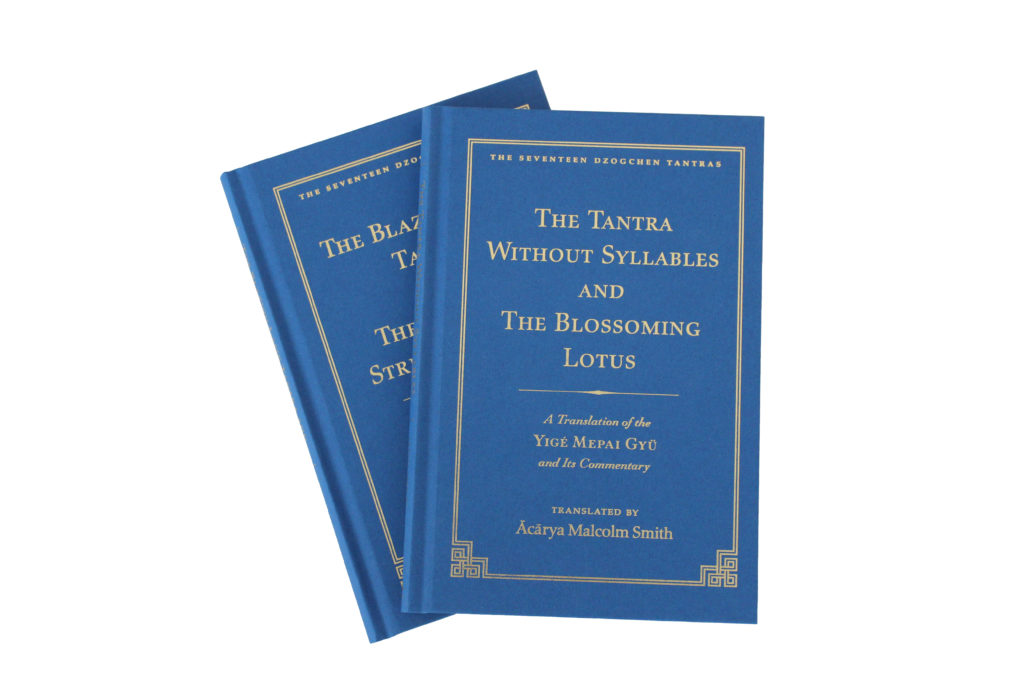
Malcolm Smith: The Seventeen Tantras of the Great Perfection
In this episode, host Daniel Aitken speaks with Malcolm Smith, translator in the Tibetan Buddhist tradition and long-time practitioner of Dzogchen. In this rich conversation, Malcolm discusses one of the most influential texts in all of Tibetan Buddhism, the Seventeen Tantras of the Great Perfection. Malcolm shares the fascinating history of these eleventh-century teachings, and reads from his recent translation of two of its central texts, the Self-Arisen Vidyā Tantra (Rigpa Rangshar) and the Self-Liberated Vidyā Tantra (Rigpa Rangdrol). Malcolm and Daniel also discuss the notion of attachment without clinging in the Dzogchen view, the necessary distinctions between trekchö and tögal practice, and why the language of pramāna is important on the Dzogchen path. Malcolm also addresses ways the Dzogchen view rejects nondualism and clarifies a popular misunderstanding of the term “basis” in this context. If you’re interested in hearing more from Malcolm Smith, check out our first podcast interview with him, where he shares stories from his own spiritual journey, as well as insights from his translation of Buddhahood in this Life, a core Dzogchen text.
Yoga of the Natural State
Experience for the first time in English the aural lineage of the Great Perfection Dzogchen tradition, expertly brought to life by the practitioner and translator Ācārya Malcolm Smith.
Longchen Rabjam, or Longchenpa as he is popularly known, stands as one of the great Nyingma masters of Tibetan Buddhism, producing a wealth of texts in the Dzogchen, or Great Perfection, tradition. This volume presents eight texts found in two collections of Longchenpa’s writings—the Lama Yangtig and the Zabmo Yangtig. These texts record a special experiential tradition of Great Perfection teachings by Chetsun Sengé Wangchuk to a single student in the eleventh century, a tradition passed down mouth-to-ear, one student at a time, until it was set down in writing by Longchenpa in the mid-fourteenth century.
While Longchenpa’s writings on the Seventeen Tantras are widely known, his writings on the Dzogchen aural lineage have received little attention, even though Tibetan histories show that it is the aural lineage that ensured the survival of the Great Perfection lineage. With this book of translations, we now have for the first time in English these records of the most important aural lineage in the Great Perfection tradition.
Unlike the arcane and difficult textual tradition associated with the Seventeen Tantras, the aural lineage teachings are experiential, easy to understand and practice, straightforward, and written in relatively simple language rich with similes and metaphors. The texts included in Yoga of the Natural State concern all aspects of the Great Perfection teaching, ranging from how to practice the preliminary practices, how the Great Perfection is introduced to qualified students, the correct view, meditation, and conduct of the practitioner, how to attain the state of liberation in this life, and how to recognize and attain liberation in the bardos.
Yoga of the Natural State: The Dzogchen Aural Lineage is an invaluable addition to the library of anyone interested in Great Perfection theory and practice.
Self-Arisen Vidya Tantra (vol 1) ebook
“If one knows the Self-Arisen Vidya Tantra, the Self-Liberated Vidya Tantra, and the Tantra Without Syllables, one will have command over the general meaning of the tantras, like a king who has command over his subjects.”—Treasury of the Supreme Vehicle
The eleventh-century Seventeen Tantras are the most important texts in the Tibetan Buddhist tradition of the Great Perfection. This first volume of the new series from Malcolm Smith is the only complete English translation of the Rigpa Rangshar, which is the major commentary tantra on all aspects of the doctrine of the Great Perfection.
Malcolm Smith also offers a comprehensive introduction. Two vital appendices and a rich index for both volumes can be found in volume 2, The Self-Liberated Vidya Tantra, available in ebook form here.
This is vital reading for any student of Dzogchen.
Malcolm Smith: Dzogchen, Sakya, and Translation (#148)
This episode of the Wisdom Podcast, recorded live as a Wisdom Dharma Chat, features host Daniel Aitken joined by Malcolm Smith—translator in the Tibetan Buddhist tradition and long-time practitioner of Dzogchen. Malcolm Smith has been a student of the Great Perfection teachings since 1992, his main Dzogchen teachers being Chögyal Namkhai Norbu and the late Kunzang Dechen Lingpa. He is a veteran of a traditional three-year solitary Tibetan Buddhist retreat, a published translator of Tibetan Buddhist texts, and was awarded the Ācārya degree by the Sakya Institute in 2004. He graduated in 2009 from Shang Shung Institute’s School of Tibetan Medicine, and has worked on translations for renowned lamas since 1992, including H.H. the Sakya Trichen Rinpoche, Kyabgön Phakchok Rinpoche, Kunzang Dechen Lingpa, Khenpo Migmar Tseten, Tulku Dakpa Rinpoche, Khenchen Könchog Gyaltshen Rinpoche, and more.
In this lively discussion, Malcolm and Daniel talk about:
- Malcolm’s new translation on Sakya Lamdre, Sakya: The Path with Its Result;
- yantra yoga (trul-khor) and Dzogchen in the Sakya yogic tradition;
- translating the commentary on the Seventeen Tantras of the Great Perfection;
- Candrakīrti and the Prāsaṅgika Mādhyamaka view in Dzogchen;
- systems of medicine and elemental compatibility in the tantras;
- trekchö, tögal, and two types of dharmatā in Dzogchen teachings;
- and much more.
 Remember to subscribe to the Wisdom Podcast for more great conversations on Buddhism, meditation, and mindfulness. And please give us a 5-star rating in Apple Podcasts if you enjoy our show—it’s a great support to us and it helps other people find the podcast. Thank you!
Remember to subscribe to the Wisdom Podcast for more great conversations on Buddhism, meditation, and mindfulness. And please give us a 5-star rating in Apple Podcasts if you enjoy our show—it’s a great support to us and it helps other people find the podcast. Thank you!
Malcolm Smith: Dzogchen: Ten Key Terms (#166)
This episode of the Wisdom Podcast, recorded live as a Wisdom Dharma Chat, features a special guest, Malcolm Smith. Malcolm Smith has been a student of the Great Perfection teachings since 1992 and graduated in 2009 from Shang Shung Institute’s School of Tibetan Medicine. He is a veteran of the traditional three-year solitary Tibetan Buddhist retreat, a beloved and published translator, and was awarded the Acharya degree from the Sakya Institute in 2004.
In this episode you’ll hear about Malcolm’s new Wisdom Academy course, Dzogchen: Ten Key Terms, and he and host Daniel Aitken dive into the difference in terminology between various other traditions and Dzogchen, including terms such as original purity and ignorance. They go on to discuss Longchepa’s distinction between different states and types of mediation, transmission and direct introduction, and much more.

Remember to subscribe to the Wisdom Podcast for more great conversations on Buddhism, meditation, and mindfulness. And please give us a 5-star rating in Apple Podcasts if you enjoy our show—it’s a great support to us and it helps other people find the podcast. Thank you!
Ācārya Malcolm Smith: The Dzogchen Aural Lineage (#205)
Join Daniel Aitken and Ācārya Malcolm Smith as they discuss the roots of Dzogchen and the aural lineage in the Great Perfection tradition as described in Malcolm’s newest translation Yoga Of The Natural State, releasing in the winter of 2025 and available now for pre-order. In this episode of the Wisdom Podcast, recorded live as a Wisdom Dharma Chat, explore the historical transmission of Dzogchen teachings through the textual and aural lineages and the roles these play in preserving the authenticity and comprehensibility of the teachings. You won’t want to miss this illuminating conversation.
You’ll hear Daniel and Malcolm discuss:
- the process of translating Longchenpa’s writings;
- differences between ‘awareness of awareness’ and the true nature of rigpa;
- key Dzogchen terms such as original purity (ka dag) and natural perfection (lhun grub);
- Chogyal Namkhai Norbu and his impact on spreading Dzogchen teachings to the West; and
- much more!

Remember to subscribe to the Wisdom Podcast for more great conversations on Buddhism, meditation, and mindfulness. If you enjoy the show please consider giving us a 5-star rating in Apple Podcasts—it’s a great support to us and helps other people find the podcast. Thank you!
Malcolm Smith: Translating the Tantras (#108)
This episode of the Wisdom Podcast, recorded live as a Wisdom Dharma Chat, features an interview with Malcolm Smith, renowned Tibetan Buddhist translator. Malcolm is the translator of two box sets from the Seventeen Tantras, published by Wisdom: The Self-Arisen Vidyā Tantra (Vol. 1) and The Self-Liberated Vidyā Tantra (Vol. 2), and The Tantra Without Syllables (Vol. 3) and The Blazing Lamp Tantra (Vol. 4).
Daniel and Malcolm discuss the connection between the channels and various states of consciousness, the Seventeen Dzogchen Tantras, many facets of Dzogchen practice and philosophy, and much more!
Malcolm Smith: Translating The Tantra Without Syllables and The Blazing Lamp Tantra
For this episode of the Wisdom Podcast, host Daniel Aitken speaks with Wisdom author and renowned Tibetan Buddhist translator, Malcolm Smith. Malcolm has been a student of the Great Perfection teachings since 1992 and studied under Dzogchen masters Chogyal Namkhai Norbu and the late Kunzang Dechen Lingpa. His translations include Buddhahood in this Life: The Great Commentary of Vimalamitra, which is one of the earliest and most influential tests of the Dzogchen tradition of Tibetan Buddhism. Most recently, Malcolm has published the second installment of a multi-volume translation project of the Seventeen Tantras, which are among the most essential texts of the Great Perfection tradition. The first installment includes The Self-Arisen Vidyā Tantra (Vol 1) and The Self-Liberated Vidyā Tantra (Vol 2), published in 2019. His most recent translation is of The Tantra Without Syllables (Vol 3) and The Blazing Lamp Tantra (Vol 4), published in 2020.
In this fascinating conversation, Malcolm and Daniel focus on Malcolm’s most recent translation of Volumes 3 and 4, discussing why these, like Volumes 1 and 2, are essential to an overall understanding of the whole Dzogchen system. You’ll hear Malcolm give a brief overview of the history of the Seventeen Tantras in relationship to Dzogchen, Dzogchen’s central teachers and texts, and how the Seventeen Tantras fit within other Tibetan Buddhist traditions. You’ll also hear why these two texts—The Tantra Without Syllables (Vol 3) and The Blazing Lamp Tantra (Vol 4)—are published together. Malcolm explains how these two texts contain some of the most detailed expositions on two essential practices of the Great Perfection: trekchö, the view, and thögal, the meditation.
Malcolm and Daniel also discuss the nature of restriction of these texts both historically and for contemporary students of Dzogchen.
This episode was recorded as part of our new series, Wisdom Dharma Chats, where you can attend live video versions of the Wisdom Podcast from the comfort of your own home. Wisdom Dharma Chats also include a Q&A where you can ask questions directly to Buddhist teachers, practitioners and scholars. To watch the video version of this podcast, visit our Wisdom Dharma Chats page.
To hear Malcolm’s Wisdom Podcast on The Self-Arisen Vidyā Tantra (Vol 1) and The Self-Liberated Vidyā Tantra (Vol 2), which is the first 2-volume set of the Seventeen Tantras, click here.
Malcolm Smith: Translating Dzogchen Texts
In this episode of the Wisdom Podcast we meet Malcolm Smith, translator of the core Dzogchen text Buddhahood in This Life, recently published by Wisdom Publications. This inspired translation of the Great Commentary of Vimalamitra offers insights into one of the earliest and most influential texts in the Dzogchen tradition of Tibetan Buddhism. We sat down with Malcolm to hear the fascinating historical context of this classic text as situated within Tibet’s terma, or treasure, tradition. Most profoundly, Malcolm provides extensive insights on the finer points of Dzogchen meditation, including topics such as the pathway of pristine consciousness, how delusions arise, and the importance of receiving transmission from a qualified Dzogchen teacher.

